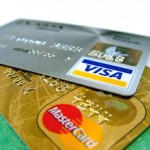 Identity theft—when someone steals your personal and/or financial information and uses it without your knowledge or permission—is a serious problem in the U.S. today: millions of Americans are affected.
Identity theft—when someone steals your personal and/or financial information and uses it without your knowledge or permission—is a serious problem in the U.S. today: millions of Americans are affected.
In fact, according to the Identity Theft Resource Center, 23 million Americans had information such as their Social Security number, driver’s license number, medical records, or financial accounts exposed in 2011.
Why is identity theft such a problem? When you are the victim of identity theft, it can wreak havoc on your credit and finances, not to mention your reputation. The person who takes your identity could even commit a crime. And it can take months to resolve, according to the Federal Trade Commission. That’s why it is so important to protect yourself from identity theft.
What can you do to safeguard your finances? Make sure that you are careful when carrying cards, checks, and important papers. Never carry your Social Security card in your wallet or purse. Be wary of giving out too much personal information. Finally, watch out for the following signs:
- Checks missing from your checkbook
- Accounts that you don’t recognize showing up on your credit report
- Bills or collection calls regarding accounts that you didn’t open
- Bank statements and bills arriving late
- Bank or credit statements appearing altered
- Charges you didn’t authorize showing up on your accounts
You might also consider buying identity theft insurance. This insurance protects you against any financial losses that you might incur if someone steals your identity. In addition, the insurance company will assign someone to carry out the steps and paperwork necessary to get your identity back in order.
If you think you’ve been a victim of identity theft, it’s important that you take the following steps:
- File a police report as soon as possible.
- Cancel any accounts that have suspicious activity.
- If your wallet or purse was stolen, cancel all of your debit and credit cards. Call your bank/credit card providers to get replacements, and put a stop-payment order on all lost cards.
- Contact Experian, Equifax, or TransUnion to put a fraud alert on your credit report.








Speak Your Mind